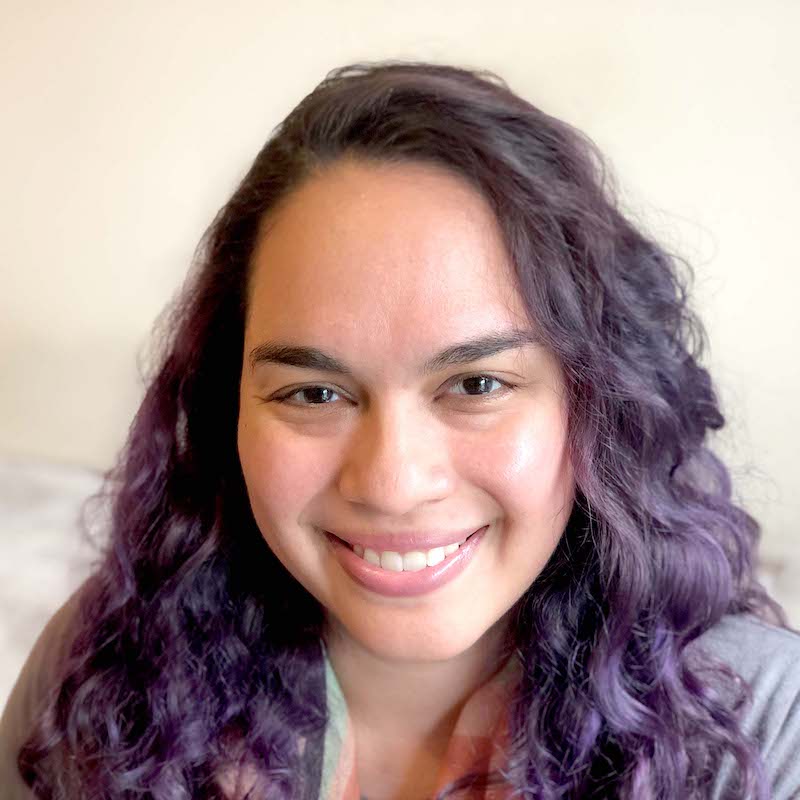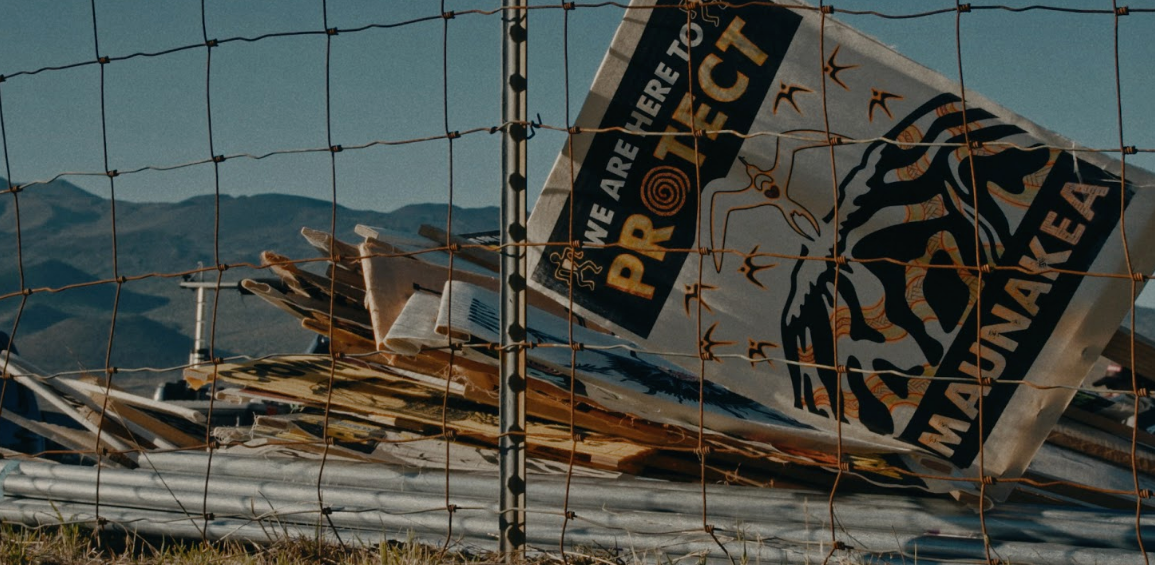
- Details
- By Monica Whitepigeon
At an early age, Native Hawaiian filmmaker Ciara Lacy fell in love with storytelling. Lacy recalled her father going to a garage sale and buying her a typewriter for her fifth birthday. She was so excited to use her gift whenever she could that she even typed her homework assignments. A young Lacy would assemble sandwiches and hurry off to her room to create her own stories too.
As she grew older, MTV music videos showed her what was possible with film as the genre presented the intersectionality of music, art and performance while being cool. Lacy decided to learn more and went on to write and direct her own films that weave together strong characters and investigative journalism to challenge the political and creative status quo. Her work has screened at festivals around the world as well as shown on networks including ABC, Netflix, PBS and Al Jazeera.
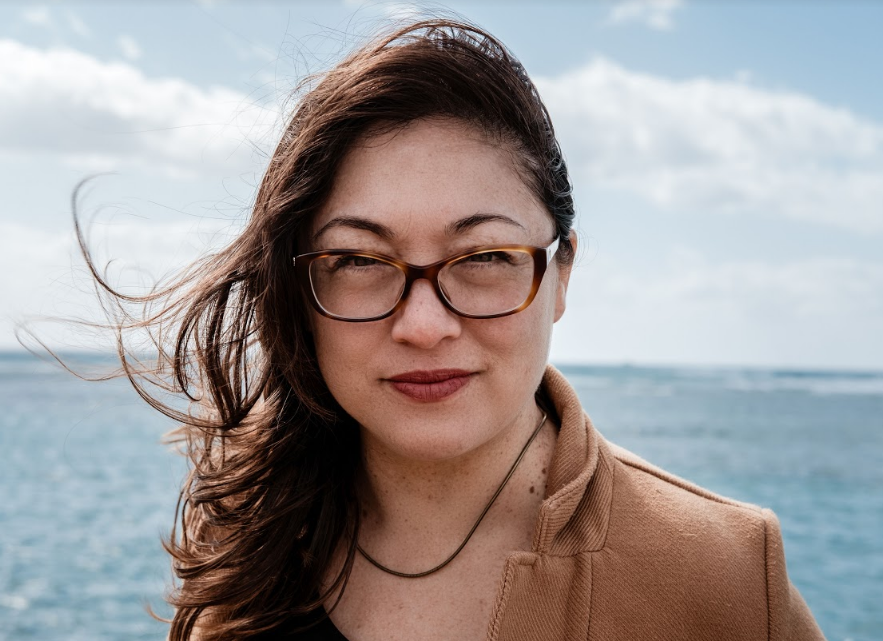 Ciara Lacy, director of This is the Way We Rise, an official selection of the Shorts Program at the 2021 Sundance Film Festival. Courtesy of Sundance Institute | photo by Bruna Hort
Ciara Lacy, director of This is the Way We Rise, an official selection of the Shorts Program at the 2021 Sundance Film Festival. Courtesy of Sundance Institute | photo by Bruna Hort
This year, Sundance Film Festival showcased Lacy’s short film This is the Way We Rise, an introspective look into the protests at Mauna Kea, Hawai'i told through the perspective of queer slam poet/activist Dr. Jamaica Heolimeleikalani Osorio (Kanaka Maoli). Utilizing cinema verité or observational documentary, the 12-minute film combines collaborator footage (social media clips) with various cinematic techniques, including split screen, to create a poetic theme throughout the unfolding narrative.
“Hawaiian languages are already poetic. The oral traditions align with who we are as a people. Words have power (and) Dr. Osorio has such fierce words. She has a way of explaining how you feel as an Indigenous person,” Lacy said.
The three-time national poetry champion, Dr. Osorio is on faculty at the University of Hawaiʻi at Mānoa in the Indigenous and Native Hawaiian Politics department. In the film, the audience follows her into the classroom and to the mountain base as she reflects on the challenges Hawaiians face. At times, Dr. Osorio speaks directly to the camera, a practice not often used in documentaries as it creates a sense of intimacy with the audience. This apt approach allows the audience to feel as if they are directly involved and are having a conversation.
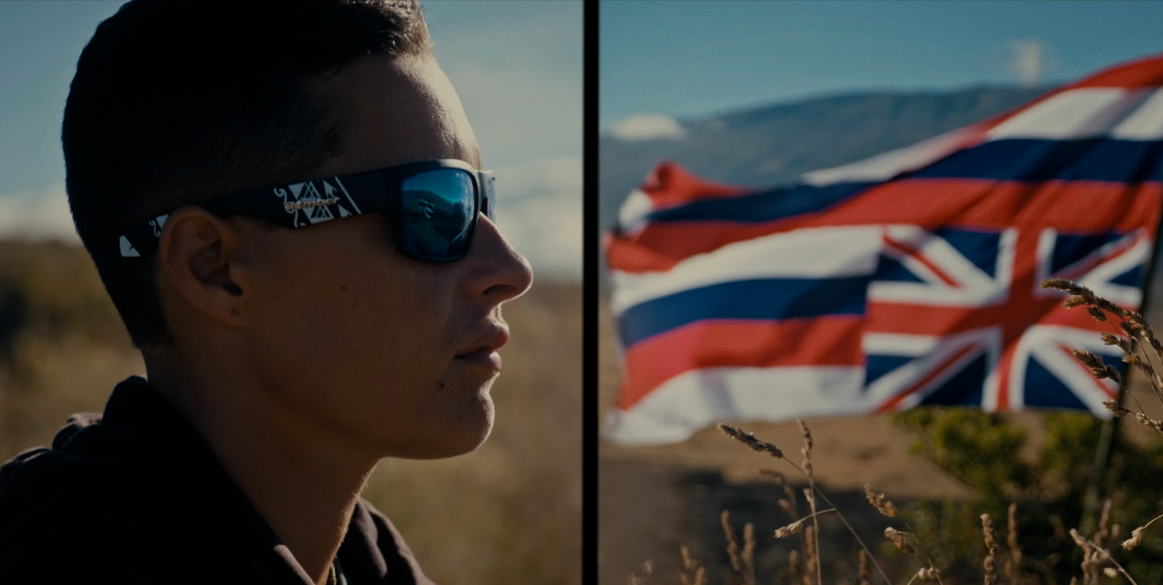 Jamaica Osorio, slam poet, academic, and activist describes her process as an artist. The image juxtaposes Jamaica with the Hawaiian flag flipped upside down in a state of distress. Courtesy of Sundance Institute | photo by Chapin Hall
Jamaica Osorio, slam poet, academic, and activist describes her process as an artist. The image juxtaposes Jamaica with the Hawaiian flag flipped upside down in a state of distress. Courtesy of Sundance Institute | photo by Chapin Hall
Initially meant to document Dr. Osorio’s artistic process, the short film pivoted focus as she joined other Native Hawaiian protectors to block construction of the Thirty Meter Telescope on the dormant volcano. Mauna Kea is considered sacred ground and is supposed to be held in a trust for future generations. For many involved in the film, this outcry wasn’t anti-science but rather a matter of ethics.
Lacy commented, “I watched in awe as the protection of sacred sites atop Mauna Kea, a fight spanning over 50 years, set my community on fire. Native Hawaiians paraded by the thousands in protest, stood on street corners sign waving across America. It was an empowering moment of mass unity beyond my wildest dreams.”
Heavily influenced by poets and philosophers, Lacy’s work conveys messages of hope, optimism and community strength. She holds onto the belief that everyone has a role to play when supporting their communities and advocates for more women to share their stories. She recounted her mother’s yearlong commitment to living in a valley to stop the development of a freeway.
“My mother was a radical. We got to be radical. We have been battered by colonization for too long,” claimed Lacy, who acknowledges the gender gap in filmmaking and among her people but remains optimistic.
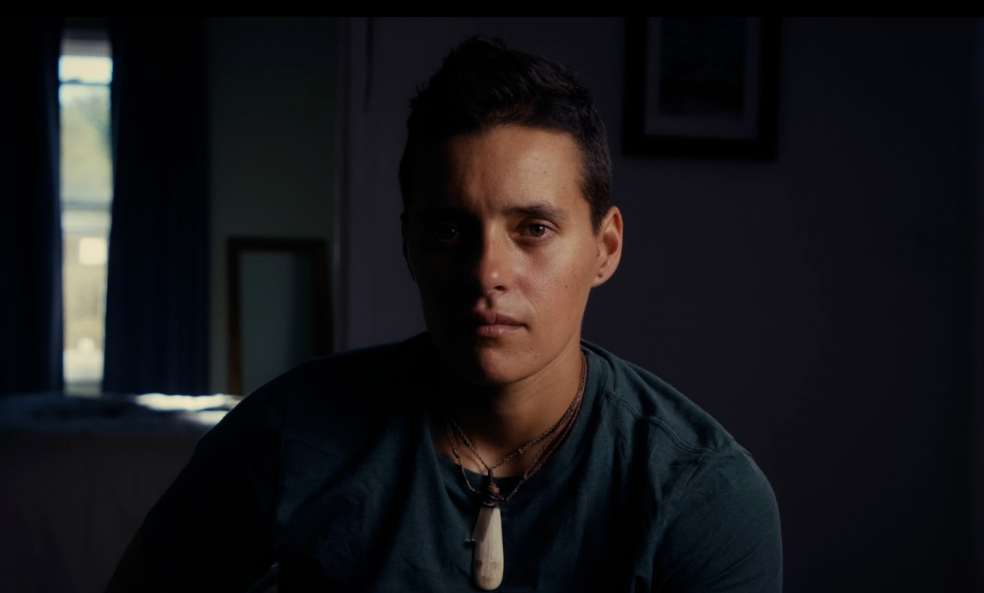 An interview close-up of Jamaica Osorio in THIS IS THE WAY WE RISE. Courtesy of Sundance Institute | photo by Chapin Hall
An interview close-up of Jamaica Osorio in THIS IS THE WAY WE RISE. Courtesy of Sundance Institute | photo by Chapin Hall
“I don’t think (the gender gap) is our future. As Hawaiians, it’s less about an individual and more about what we have to contribute to each other. There have been disappointing moments, but you just don’t walk away, you try to fix it.”
The collaborative efforts of the film have already paid off.
Commissioned by WNET (PBS) and Firelight Media, This is the Way We Rise is part of the In the Making series, a digital shorts initiative to tell emerging BIPOC artists’ stories. Having premiered in 2020, the film has received honors and won “Best Short Film” at both the Thin Line Fest in Texas and Walla Walla Film Crush in Washington.
Lacy, who is also the inaugural Sundance Institute Merata Mita Fellow, is thrilled to be a part of the 2021 festival and believes the film’s release to be kismet or rather “ancestral timing.” The pandemic has put a pause in the protests, however, Lacy’s film reinvigorates the cause and opens its message to worldwide audiences.
“It’s a bigger honor than I could imagine and gives credence to the movement,” said Lacy. “As Dr. Osorio would say, ‘Gratitude to the ancestors for planning this for us.’”
For more information and show support to the Mauna Kea movement, visit the Hawaii Community Bail Fund and Kahea Alliance.
More Stories Like This
Watermark Art Center to Host “Minwaajimowinan — Good Stories” ExhibitionMuseums Alaska Awards More Than $200,000 to 12 Cultural Organizations Statewide
Zuni Youth Enrichment Project Takes Top Emerging Artist Apprentices to Phoenix for Artistic Exploration and Cultural Immersion
From Dishwasher to Award-Winning Chef: Laguna Pueblo's Josh Aragon Serves Up Albuquerque's Best Green Chile Stew
Rob Reiner's Final Work as Producer Appears to Address MMIP Crisis
Help us defend tribal sovereignty.
At Native News Online, our mission is rooted in telling the stories that strengthen sovereignty and uplift Indigenous voices — not just at year’s end, but every single day.
Because of your generosity last year, we were able to keep our reporters on the ground in tribal communities, at national gatherings and in the halls of Congress — covering the issues that matter most to Indian Country: sovereignty, culture, education, health and economic opportunity.
That support sustained us through a tough year in 2025. Now, as we look to the year ahead, we need your help right now to ensure warrior journalism remains strong — reporting that defends tribal sovereignty, amplifies Native truth, and holds power accountable.
 The stakes couldn't be higher. Your support keeps Native voices heard, Native stories told and Native sovereignty defended.
The stakes couldn't be higher. Your support keeps Native voices heard, Native stories told and Native sovereignty defended.
Stand with Warrior Journalism today.
Levi Rickert (Potawatomi), Editor & Publisher

